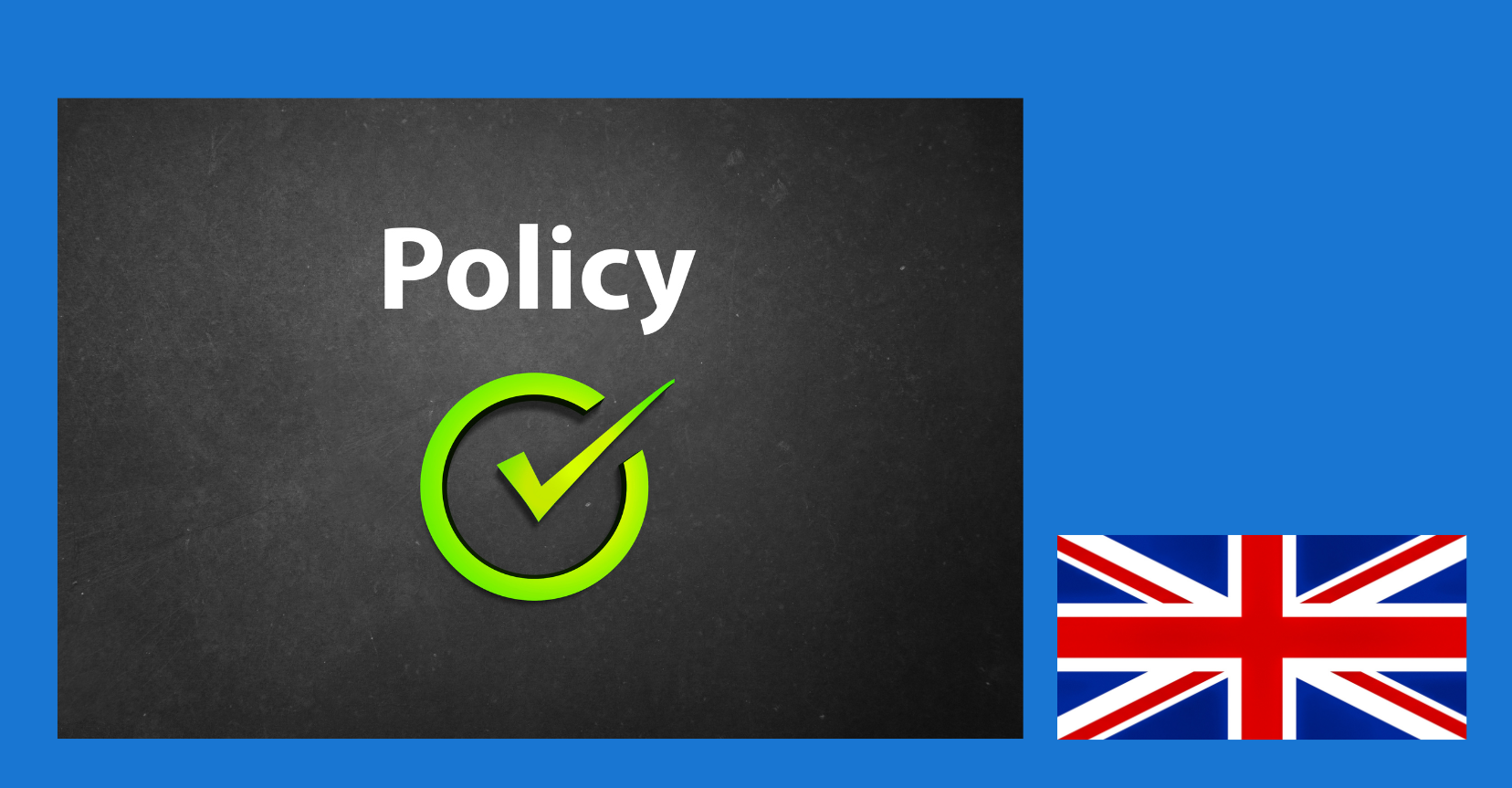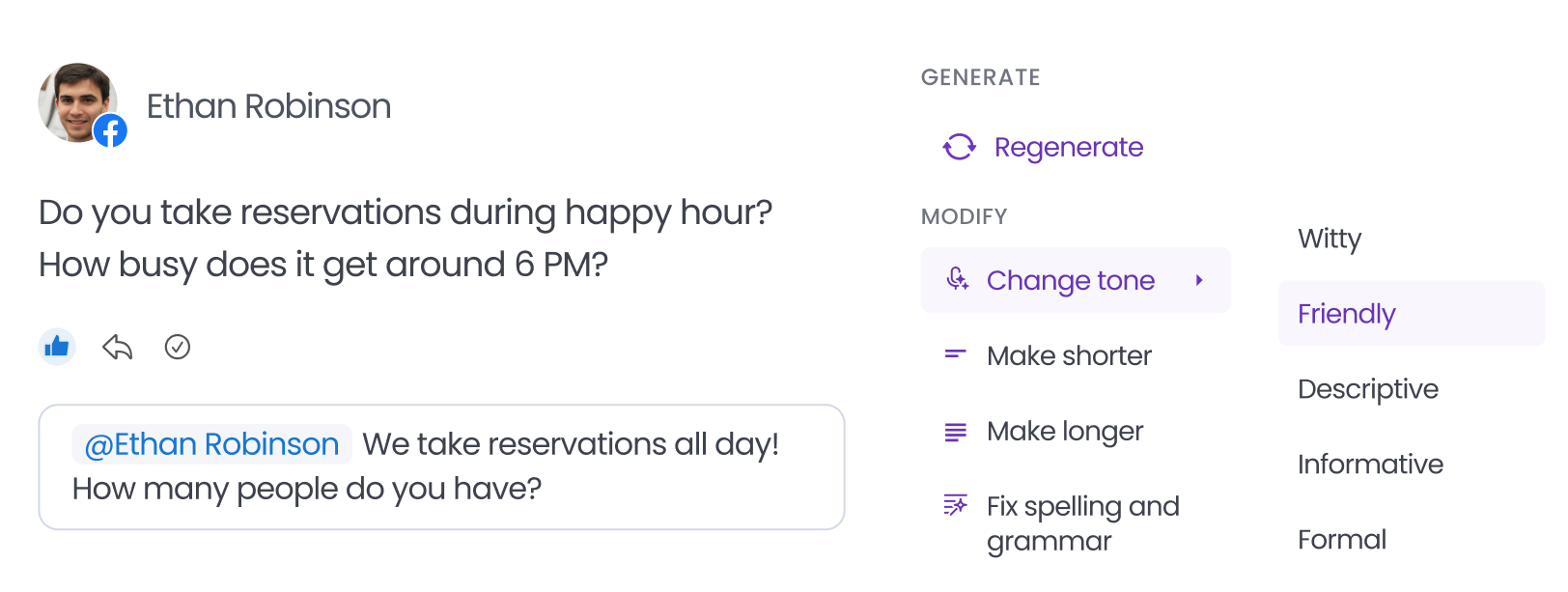With over 56.2 million social media users in the UK, it’s clear that platforms like Instagram, LinkedIn, TikTok, and X (formerly Twitter) are more than just spaces for sharing selfies or updates. They’re powerful tools that shape public perception and brand identity.
In today’s digital world, where social media is tightly woven into both personal and professional life, the line between the two is increasingly blurred. One casual comment, post, or share from an employee can have a significant impact on your company’s reputation—positive or negative. That’s why having a clearly defined social media policy in the UK is no longer a nice to have; it’s a business necessity.
A strong policy sets expectations, maintains consistency, and ensures your business stays aligned with legal, ethical, and professional standards.
This guide will help you understand a social media policy, why your UK-based business needs one, and how to create and implement it effectively.
Table of contents
- What is a social media policy?
- Why does your UK business need a social media policy?
- What should go into a corporate social media policy?
- How social media can be used in investigations
- How much can employers monitor their employees’ social media use?
- Legal considerations when creating a social media policy
- What to do if an employee is an online troll
- How to create a social media policy for your UK business
- Social media policy template in the UK example
- Safeguarding your business and employees
- Frequently asked questions on UK social media policy
- Enhance your social media strategy with Birdeye
What is a social media policy?
A social media policy is a document that outlines guidelines for how employees should conduct themselves online—both when representing the company and in their personal use that could be associated with the business. It helps protect the brand’s reputation and ensures legal compliance. Further, it covers aspects such as what is acceptable to post, how to protect confidential information, and the consequences of inappropriate behaviour.
A well-crafted social media policy UK businesses can rely on typically addresses:
- The distinction between personal and professional use.
- Expectations for representing the company online.
- Legal considerations such as intellectual property rights, privacy laws, and defamation.
- Disciplinary procedures for non-compliance.
Employers must introduce the social media policy during the onboarding process so that employees are well-informed. Moreover, it should also be revisited regularly to reflect evolving social media trends and regulations.
Why does your UK business need a social media policy?
As social media continues to influence both professional and personal accounts, the need for clear guidelines has never been more critical. A well-thought-out policy protects your business and employees from potential risks, including reputational damage, security breaches, and legal issues.
Implementing a comprehensive social media policy helps ensure compliance with current UK laws, such as the Data Protection Act 2018, defamation law, and employment legislation. Businesses can also maintain brand integrity and safeguard against the negative impacts of misuse, allowing employees to benefit from social media’s personal and professional advantages.

What should go into a corporate social media policy?
When creating a social media policy, businesses should consider the following key elements:
1. Confidentiality and privacy
Employees should understand that confidential information should never be shared on social media. Employees need clear guidelines on what can and cannot be disclosed online, whether it’s sensitive company data, upcoming product launches, or confidential customer information.
2. Personal vs. professional use
A social media policy should differentiate between personal social media accounts and professional use of social media. For instance, employees should be reminded that their personal social media accounts can still impact the company’s image. A disclaimer such as “opinions are my own” is useful to clarify that personal posts are not an official company statement.
3. Social media conduct
Employees should be reminded to maintain professionalism in online interactions, mainly when representing the company. This includes:
- Respectful communication: Employees should engage in online conversations professionally and respectfully. This ensures they avoid using offensive language, hate speech, or discriminatory remarks. Such behaviour can damage the company’s reputation and breach social media guidelines.
- Avoiding misinformation: Employees must carefully verify the accuracy of any posts or comments related to the company. Sharing false or misleading information can harm the company’s credibility and expose it to reputational or legal risks.
- Legal compliance: Adhere to legal regulations concerning copyright, intellectual property, and privacy when posting or interacting online. This includes refraining from using copyrighted materials without consent and safeguarding individuals’ privacy to avoid potential legal complications for the company.
4. Consequences of misuse
The policy should clearly outline the disciplinary actions for violations of the guidelines. Depending on the severity of the offence, these could range from warnings to termination.
A solid policy is essential, but businesses should also understand the legal aspects of monitoring and managing their employees’ personal social media accounts. Let’s explore these legal considerations in more depth.
How social media can be used in investigations
Some businesses, especially those involved in financial services, have a legal right to access publicly available information from social media accounts as part of investigations, including fraud prevention. This practice, however, is conducted under strict guidelines and only when necessary.
- Not routine: Investigators may access social media accounts to corroborate inconsistencies, but they do so under exceptional circumstances and following strict protocols.
- Proportionality: Social media checks are conducted in a manner that respects individuals’ rights and freedoms.
Social media landscape can be a useful tool in investigations when used appropriately and with respect for privacy.
How much can employers monitor their employees’ social media use?
The increasing risks of social media misuse have led many employers to consider monitoring their employees’ online activity. However, this is a sensitive subject, as it may infringe on employees’ rights to privacy. Here’s a look at the pros and cons of monitoring social media use:
The pros of monitoring:
- Protecting the company’s reputation: Monitoring helps prevent employees from posting harmful content that could damage the company’s public image.
- Safeguarding employees from online harassment: It allows employers to address online harassment or inappropriate comments directed at staff members.
- Ensuring productivity: Monitoring helps reduce distractions and ensures that social media use doesn’t interfere with work responsibilities.
The cons of monitoring:
- Potential breach of privacy: Employees may feel that their personal space is being invaded, especially if monitoring extends to personal accounts.
- A lack of trust: Monitoring can signal distrust, potentially harming morale and employee engagement.
- Legal issues: Monitoring social media activity too closely can lead to potential violations of employee privacy rights under the Human Rights Act 1998.
Thus, employers must balance the need for protection with respect for privacy, ensuring they comply with the Human Rights Act and data protection laws.
Having covered the monitoring aspect, let’s now focus on the legal side, addressing potential risks businesses face without proper social media policies.
Legal considerations when creating a social media policy
Businesses must understand the legal implications of a social media policy. Here are the primary legal considerations:
Human Rights Act 1998
Articles 8 and 10 protect the right to privacy and freedom of expression. However, these rights can be limited for legitimate reasons, such as protecting the company’s reputation or preventing harm to others.
Data protection laws
Businesses must comply with GDPR (General Data Protection Regulation) when monitoring social media use or handling personal data collected from social media interactions.
Employment law
Employers must follow proper procedures when disciplining employees for social media misconduct to avoid potential employment tribunal claims.
Let’s now move on to how to deal with employees who engage in inappropriate online behaviour, such as trolling, and the necessary steps to address the situation.
What to do if an employee is an online troll
Occasionally, an employee might engage in harmful online behaviour, such as trolling—posting inflammatory, offensive, or aggressive content. If this happens, following social media policy’s disciplinary procedures is essential. Here’s how you can address the situation:
Investigate
Collect evidence of the incident, including screenshots and timestamps. Speak with the employee to understand their side of the story.
Follow disciplinary procedures
Depending on the severity of the behaviour, apply the relevant disciplinary action, which could range from a warning to dismissal.
Consult with legal advisors
In severe misconduct cases, consult with an employment lawyer to ensure you comply with employment laws and minimise the risk of legal repercussions.
With that in mind, let’s examine how to craft a comprehensive social media policy that works for your UK business.
Understand Social Media Policy UK
Want to see the impact of Birdeye on your business? Watch the Free Demo Now.
How to create a social media policy for your UK business

Creating an effective social media policy in the UK requires clearly understanding your company’s goals, values, and legal obligations. Below is a brief guide on how to create a policy that works for your business:
- Define the purpose: Outline why you need a social media policy. What are the primary concerns, and what do you want to protect or achieve?
- Include UK-specific social media guidelines: Address the key points discussed earlier, such as confidentiality, acceptable behaviour, and the use of social media during work hours.
- Consult with HR and legal experts: Ensure your policy complies with employment law and data protection regulations.
- Communicate the policy: Ensure all employees and the social media team know the policy and its implications. Include it in the onboarding process and offer refresher training as needed.
- Review and update: Regularly review and update your policy to ensure it remains relevant and compliant with any changes in the law or social media trends.
If you’re ready to start, we have provided a basic social media policy examples template for the UK businesses below to help them develop your tailored policy.
Social media policy template in the UK example
For your convenience, here’s a basic framework for a social media policy template:
- Policy purpose: This social media policy template aims to guide the acceptable use of social media for employees at [Company Name], both professionally and personally.
- Scope: The policy applies to all employees, regardless of role, and covers both personal and professional use of social media.
Key guidelines for social media policy template:
- Confidentiality: Employees must not share confidential or proprietary information on social media.
- Personal social media use: Employees should include a disclaimer stating that their opinions do not reflect the company.
- Professional use: Employees must maintain professionalism and respect confidentiality when representing the company.
- Disciplinary action: Violations of this policy may result in disciplinary action, including termination.
Safeguarding your business and employees
In the fast-changing world of social media, having a clear and well-defined policy is essential for protecting your employees and brand. By outlining expectations and guidelines, businesses can create a safe, professional, and productive online environment that benefits everyone. If you need further assistance in crafting or reviewing your social media policy, feel free to reach out to us for expert advice and tailored solutions.
Frequently asked questions on UK social media policy
A social media policy helps UK businesses manage risks like reputational damage, security breaches, and legal issues while setting clear employee expectations.
It should cover confidentiality, boundaries between personal and professional use, expected conduct, and consequences for misuse.
Yes, but it must be done within legal limits, respecting privacy rights and ensuring compliance with privacy laws like GDPR.
Investigate the issue, follow disciplinary procedures, and consult legal advisors if necessary.
It should be reviewed regularly to ensure it stays relevant and compliant with law or changes in business needs.
A social media policy generally can’t restrict personal use outside work hours, but employees should be reminded that their online activity can still impact the company’s reputation.
Businesses can enforce the policy by clearly outlining expectations, providing regular training, and having a clear process for addressing any breaches with appropriate disciplinary action.
While the policy should cover all social media platform’s terms, businesses should focus on those most relevant to their industry and where employees are likely to interact publicly.
Enhance your social media strategy with Birdeye

In addition to implementing a solid social media policy, businesses can benefit from tools like Birdeye to streamline their social media management and enhance their online presence. Here’s how Birdeye can support your social media efforts:
Streamlined social media management
Birdeye allows you to manage all your social media accounts from one dashboard, simplifying monitoring and engagement with your audience.
Boost brand visibility
Birdeye helps increase your brand’s online presence and engagement by scheduling posts, tracking interactions, and analyzing performance.
Customer feedback management
Birdeye enables businesses to leverage customer reviews and feedback, enhancing the brand’s reputation online and customer relations.
Data-driven insights
Access detailed reports to understand your social media performance, helping you make informed decisions for future strategies.
Seamless integration
Easily integrate Birdeye with your existing systems to simplify social media management and improve overall efficiency.
With Birdeye, you can safeguard your brand with a clear social media policy and elevate your brand identity with a social media strategy to achieve greater success.

Originally published









